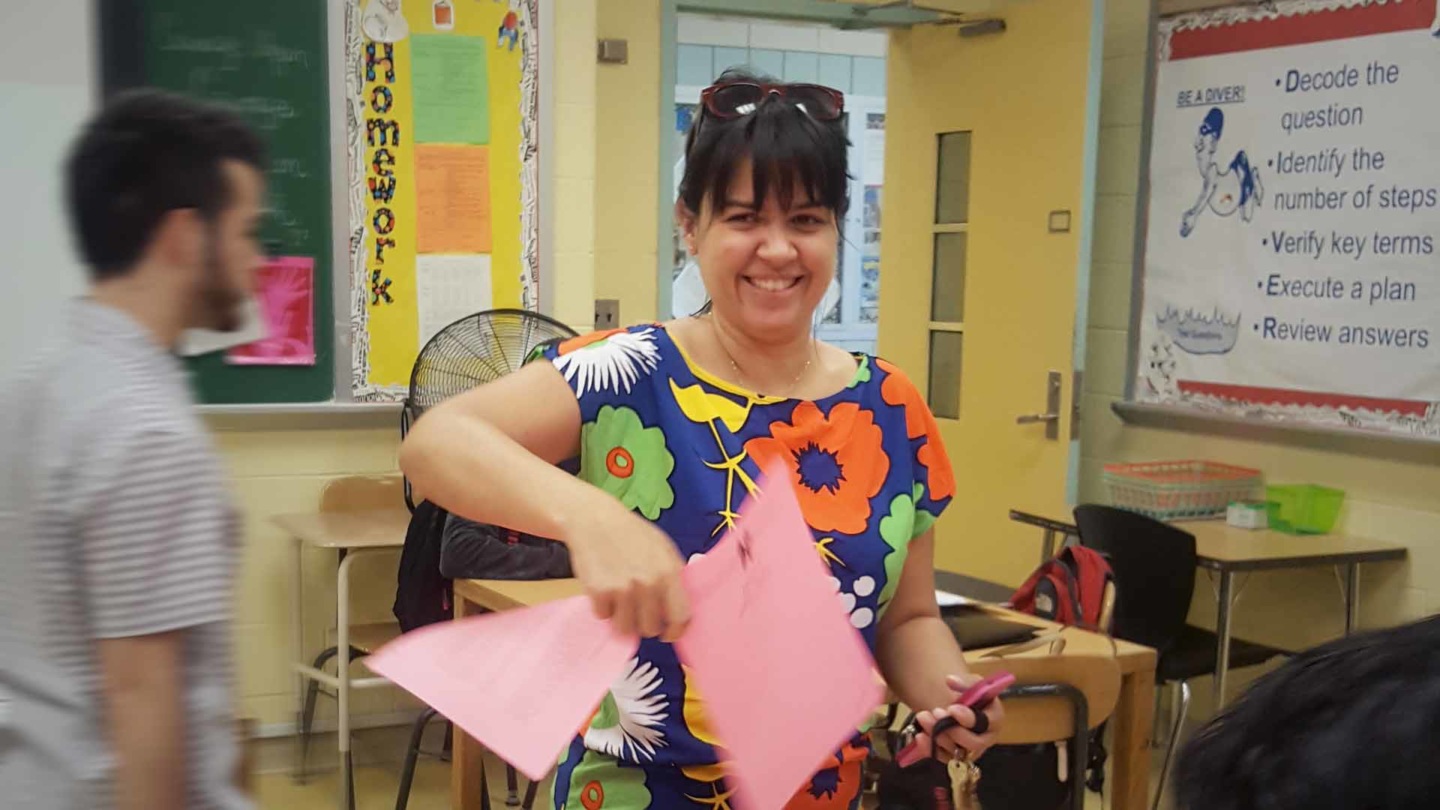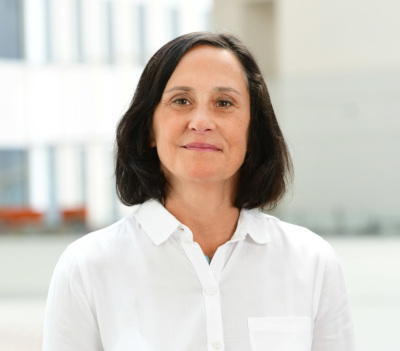
More Info
Angela Cardona and her colleague Jake Cameron teach news literacy at Queens High School of Teaching, Liberal Arts and the Sciences in Queens, New York.
Educator of the year finalists team up for powerful news literacy work
Here’s a “problem” any educator might like to have: Students find their class material so engaging that the teacher has to rein in the class discussion.
That’s exactly what Jake Cameron and Angelica Cardona experienced at Queens High School of Teaching, Liberal Arts and the Sciences in Queens, New York. Using the Checkology® virtual classroom from the News Literacy Project (NLP), they introduced news literacy education into their 12th grade government classes this spring. Students responded right away.
“The work we did with them was so powerful, they would come in and say, ‘See how this is being covered,’ or ‘Look at the partisan bias,’” says Cardona. “They make so many connections so quickly.”
The commitment of the two teachers to news literacy, even after New York City schools transitioned to distance learning because of the COVID-19 pandemic, earned them nominations for NLP’s 2020 Educator of the Year Award. Both were named as finalists.
The lively discussions showed Cardona and Cameron just how much news literacy resonated with students, even if they did have to sometimes step in and tell them it was time to move on to new material.
“It was nice to see that engagement happening,” Cameron says.
Civic engagement focus
The colleagues teach economics and government — with a civics focus — to approximately 280 seniors, developing the curricula together. They discovered Checkology through their school’s partnership with Civics for All, a New York City Department of Education initiative to provide students skills and knowledge related to democracy that features NLP resources.
“We are trying to improve civic engagement among high school students, how to improve democracy through civic duties. It’s a civic responsibility to be informed and to know what it means to be informed,” Cardona says.
She and Cameron customized Checkology lessons and resources to accommodate their workshop-style classes and created activities and tests to measure learning. In addition, they worked with English Language Arts colleagues to incorporate news literacy in their classwork. Students gained insights into how issues of race, social justice, technology and current events impact them in school, in their communities, and in the world.
Cameron also saw students apply what they learned about logical fallacies to discussions on climate change in their science classes. The students were able to examine multiple tweets regarding a meme on the topic and determine which fallacies applied, he says.
“All you can ask for as a teacher is that they take what they learn into the world and use it,” Cardona says. “It definitely made a mark.”
Students committed to news literacy
The flexibility of the platform proved particularly useful during distance learning, as the teachers moved away from a workshop model of teaching to more independent study. They also incorporated content from The Sift®, NLP’s weekly newsletter, which provided fresh and relevant examples regarding COVID-19 misinformation and related topics.
There were even some distance learning advantages. “Remote learning allowed the students to take their time with news literacy,” Cameron says, and they did not feel rushed to complete a lesson that might have been due at the end of a period lasting 40 or 50 minutes.
This fall, the teachers will further integrate news literacy into their government classes, with a focus on information and misinformation about the election. Looking ahead, they would like to create a more intentional inclusion of news literacy among humanities courses. They also hope to one day begin to offer students news literacy education in 9th grade.
“The one highlight that we take away from this is that our students have started to commit themselves to news literacy. We have seen a tremendous change in the way students are integrating the news literacy skills into their own lives,” Cameron says. “They began looking for information beyond the headlines.”
